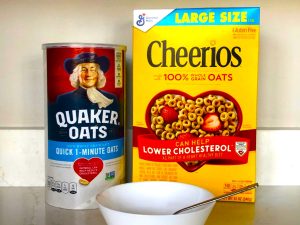The U.S. Food and Drug Administration (FDA), the Centers for Disease Control and Prevention (CDC) and state and local health officials investigated an outbreak of Salmonella Bredeney infections linked to Trader Joe’s Valencia Creamy Salted Peanut Butter, with SKU # 97111, made by Sunland Inc. of Portales, New Mexico. On November 30, 2012, the CDC issued a final update reporting that this outbreak appeared to be over after a total of 42 people from 20 states (including Illinois) were infected. Other affected states include Arizona, California, Connecticut, Louisiana, Massachusetts, West Virginia, Maryland, Michigan, Minnesota, Missouri, New Jersey, New Mexico, New York, Nevada, North Carolina, Pennsylvania, Rhode Island, Texas, and Virginia. Most people injured by the contaminated food were infected with Salmonella and developed diarrhea, fever, and abdominal cramps 12 to 72 hours after infection. The illness usually lasts from four days to a week. In some people, the diarrhea may be so severe that the patient needs to be hospitalized. In these patients, the Salmonella infection may spread from the intestines to the bloodstream, and then to other body sites and can cause death unless the person is treated promptly with antibiotics. Young children, the elderly, and those with compromised immune systems are the most likely to have severe infections. It is estimated that Approx. 400 persons die every year with acute salmonellosis. The FDA found that between June 2009 and August 2012, Sunland Inc. had distributed, or cleared for distribution, peanut, and almond butter after testing identified the presence of at least one of nine different Salmonella types in those lots. Two of these lots showed the presence of the outbreak strain of Salmonella Bredeney. Further, during the inspection of the processing plant in 2012, the FDA found the presence of Salmonella in numerous environmental samples, including Salmonella Bredney. Investigators found that employees improperly handled equipment used to hold and store food. There were no handwashing sinks in the peanut processing building production or packaging areas and employees had bare-handed contact with ready-to-package peanuts. This is in addition to numerous other problems with the handling and storage of equipment, and products, both raw and cooked. On November 26, 2012, the FDA suspended the “food facility” registration of Sunland, Inc. which is required for a facility that manufactures, processes, or holds food in the United States. This was the FDA’s first use of its suspension authority under the Food Safety Modernization Act. On December 21, 2012, U.S. District Judge William P. Johnson signed a consent decree imposing requirements on Sunland Inc.to keep potentially harmful products from entering the market. Based on the requirements of the decree, the FDA reinstated Sunland’s food facility registration. However, the company cannot process or distribute food from its peanut butter plant or peanut mill plant until it has complied with the consent decree’s requirements to the FDA’s satisfaction. The consent decree requires actions including that Sunland retain an independent sanitation expert to develop a sanitation control program that the company must then implement, and, the company must conduct environmental monitoring and testing to ensure that disease-causing organisms are not present in its facility or in its food products. Hopefully, all these steps will go a long way toward preventing any future injuries due to food poisoning or other foodborne illnesses. More information on the situation can be found by clicking here.
Related Posts: The Return of Safe Food? — A New Law Overhauls the Handling and Processing of Food, Is Your Food Safe?—How to Protect Yourself From Foodborne Illness

 Illinois Personal Injury Lawyer Blog
Illinois Personal Injury Lawyer Blog


 It’s common knowledge that fast food isn’t the most nutritious dining option, but you should at least be able to expect that the hamburger or chicken nuggets you are devouring are nontoxic. That may not be the case, say researchers at George Washington University. A new
It’s common knowledge that fast food isn’t the most nutritious dining option, but you should at least be able to expect that the hamburger or chicken nuggets you are devouring are nontoxic. That may not be the case, say researchers at George Washington University. A new  Beech-Nut Nutrition is voluntarily
Beech-Nut Nutrition is voluntarily